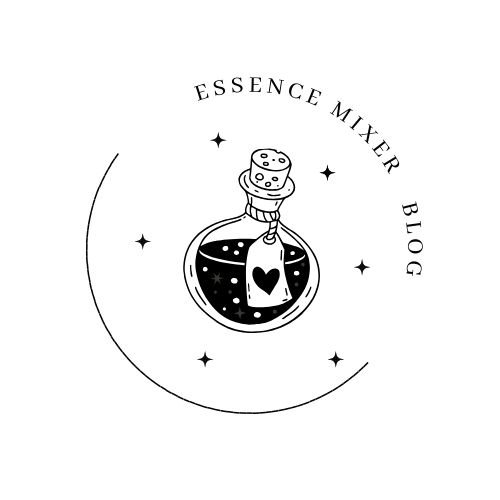Seven pregnancy-approved fragrance oils you can safely use include lavender, chamomile, sweet orange, neroli, and peppermint, along with carrier oils like jojoba and sweet almond. You'll want to dilute these natural oils properly (1-2 drops per teaspoon of carrier oil) and avoid synthetic alternatives containing phthalates or parabens. Always conduct a patch test first and apply to pulse points, avoiding your abdomen. Discover how these gentle scents can enhance your pregnancy journey while keeping you and baby safe.
Understanding Fragrance Oil Safety Standards During Pregnancy

When you're expecting a baby, choosing safe fragrance oils becomes essential for both your well-being and your developing child's health.
Selecting pregnancy-safe fragrances isn't just about you – it's about protecting your developing baby's health during this precious time.
You'll want to avoid synthetic chemicals like phthalates and parabens, which can affect hormonal balance and fetal development.
While certain essential oils are safe during pregnancy, such as lavender and chamomile, you must dilute them properly with a carrier oil.
Before using any fragrance product, check its safety rating on the Environmental Working Group's database and look for EWG Verified options.
Since pregnancy can increase skin sensitivity, always perform a patch test to prevent allergic reactions.
Remember to use fragrances in well-ventilated areas to minimize inhalation exposure.
Essential Properties of Pregnancy-Safe Fragrance Oils
Before using any fragrance oil during pregnancy, you'll need to perform a patch test and follow strict dilution guidelines to guarantee your safety and your baby's well-being.
You can maximize the benefits of pregnancy-safe oils by applying them correctly – using just 1-2 sprays on pulse points while avoiding the abdomen area.
The therapeutic properties of natural fragrances like lavender, chamomile, and citrus can help you manage common pregnancy discomforts while providing a safer alternative to synthetic perfumes.
Safety Testing Guidelines
Since pregnancy heightens sensitivity to fragrances, understanding proper safety testing guidelines for fragrance oils becomes vital for expectant mothers.
Before using any fragrance oil, you'll need to perform a patch test on a small area of your skin to check for adverse reactions. While certain essential oils are safe during pregnancy, like lavender and chamomile, you must dilute them properly with carrier oils to prevent irritation.
Don't skip this important step, as your skin may be more sensitive now. Always consult your healthcare provider before incorporating new fragrance oils into your routine. They'll help guarantee your choices align with your pregnancy needs.
Remember to avoid oils containing phthalates and synthetic chemicals, and stay away from specific essential oils like rosemary and eucalyptus that could pose risks during pregnancy.
Dilution and Application Methods
Proper dilution of fragrance oils stands as a cornerstone of safe use during pregnancy.
You'll need to mix your chosen essential oils with a carrier oil like jojoba or sweet almond oil to guarantee they're safe to use. The recommended ratio is 1-2 drops of fragrance oil per teaspoon of carrier oil.
Before applying any diluted blend, always perform a patch test on a small area of skin to check for sensitivities.
Here's how to safely apply your diluted fragrances:
- Fill a roll-on bottle with your diluted blend for easy application on pulse points
- Use a diffuser for gentle aromatic exposure, limiting sessions to 30 minutes
- Apply to wrists and behind ears, avoiding the abdomen
- Start with minimal amounts and increase gradually if no reactions occur
Aromatherapy Benefits During Pregnancy
The gentle power of aromatherapy offers multiple benefits for expectant mothers traversing the physical and emotional changes of pregnancy. You'll find that pregnancy-safe essential oils can greatly boost your overall well-being through various therapeutic properties.
| Oil Type | Benefits | Best Use |
|---|---|---|
| Lavender | Sleep aid, relaxation | Diffuser before bed |
| Chamomile | Anxiety relief, calm | Bath or massage |
| Sweet Orange | Mood lift, reduce stress | Room spray |
| Neroli | Emotional balance | Pulse points |
| Peppermint | Nausea relief | Inhaler or diffuser |
When you're experiencing pregnancy discomforts, these aromatherapy benefits can provide natural relief. Whether you're battling morning sickness with ginger oil or creating a calming bedtime routine with lavender, you'll discover that strategic use of these fragrances can transform your pregnancy experience.
Natural vs. Synthetic Fragrance Oils for Expectant Mothers
When you're expecting, natural fragrance oils derived from plant extracts offer a safer alternative to synthetic ones, providing gentle aromatherapy benefits without exposing you to hormone-disrupting chemicals like phthalates.
You'll find that synthetic fragrances often contain undisclosed chemical mixtures that can trigger skin sensitivities and allergic reactions, which are particularly concerning during pregnancy when your body is more vulnerable.
To protect yourself and your developing baby, opt for phthalate-free and paraben-free natural oils, such as lavender or chamomile, while always consulting your healthcare provider about specific scent choices.
Health Benefits Natural Oils
Choosing natural fragrance oils during pregnancy offers significant advantages over their synthetic counterparts, particularly when it comes to maternal and fetal health. When you're expecting, these safe alternatives can protect both you and your baby from harmful chemicals while providing therapeutic benefits.
- Natural fragrance oils derived from lavender help you relax during pregnancy-related stress.
- Chamomile-based oils promote better sleep and reduce anxiety.
- Plant-based extracts support emotional well-being without harsh chemicals.
- Essential oils provide gentle aromatherapy without hormone-disrupting phthalates.
Always consult your health care provider before incorporating any new natural fragrance products into your pregnancy routine.
These gentle alternatives minimize your exposure to synthetic additives while offering calming properties that can enhance your pregnancy journey.
You'll find that organic, plant-derived options provide the perfect balance of safety and sensory enjoyment.
Synthetic Risks During Pregnancy
Understanding synthetic fragrance risks becomes especially important when comparing them to natural alternatives during pregnancy. When you're expecting, your body becomes more sensitive to chemicals, making synthetic fragrances particularly concerning.
These artificial scents often contain phthalates and hormone disruptors that can interfere with your baby's development. You'll want to be extra cautious about skin irritations, which can worsen during pregnancy due to heightened sensitivity.
Instead of synthetic fragrances, consider switching to essential oils like lavender and chamomile, which offer gentle, natural aromas without harmful chemicals. When shopping for personal care products, look for phthalate-free options and check ingredient lists carefully.
Choose products that clearly state their natural components rather than hiding behind the vague term "fragrance" on their labels.
Making Informed Scent Choices
For expectant mothers steering through the world of fragrances, the distinction between natural and synthetic oils can significantly impact both maternal and fetal health.
When you're seeking Pregnancy Safe options, natural fragrance oils are generally considered safe and offer the benefits of aromatherapy without harmful synthetic compounds.
To make informed choices about your fragrances during pregnancy:
- Select products with transparent ingredient lists that specifically avoid "fragrance" or "parfum"
- Choose essential oils like lavender, chamomile, and sweet orange for their gentle properties
- Look for EWG Verified products rated level 1 or 2 for maximum safety
- Always perform a patch test before using new scents, as pregnancy can increase skin sensitivity
Remember to prioritize natural formulations and consult your healthcare provider about specific essential oils that align with your pregnancy journey.
Top Carrier Oils for Diluting Pregnancy-Safe Fragrances
The perfect carrier oil serves as your foundation for creating pregnancy-safe fragrances, ensuring both safety and ideal absorption.
When selecting carrier oils for diluting essential oils, you'll find three standout options that offer unique benefits during pregnancy.
Jojoba oil mimics your skin's natural oils, making it an excellent choice to prevent irritation while keeping your skin balanced.
Sweet almond oil packs powerful vitamins A and E, helping you maintain elasticity and reduce the likelihood of stretch marks.
If you're looking for quick absorption, fractionated coconut oil won't leave you feeling greasy while effectively distributing your chosen fragrances.
Remember to maintain a 1-2% dilution ratio when mixing your essential oils with these carrier oils to create safe, nurturing blends that pamper your changing body.
Blending Techniques for Gentle Pregnancy Perfumes

Creating your own pregnancy-safe perfume blend requires a delicate balance of artistry and precision to guarantee both enjoyment and safety.
When you're mixing essential oils with carrier oils like sweet almond, remember to maintain a 1-2% dilution ratio to protect your sensitive skin during pregnancy.
Here's your step-by-step blending process:
- Pour one ounce of your chosen carrier oil into a clean rollerball bottle.
- Add 6-12 drops of pregnancy-safe essential oils like lavender or chamomile.
- Gently roll the bottle between your palms to blend thoroughly.
- Apply a small patch test on your inner wrist and wait 24 hours.
You'll want to observe how your skin reacts before applying the blend more widely, as pregnancy can increase sensitivity to fragrances.
Storage and Shelf Life of Pregnancy-Safe Fragrance Blends
Proper storage techniques can mean the difference between a fresh, safe pregnancy fragrance blend and one that's lost its therapeutic properties. To protect your pregnancy-safe essential oils and fragrance blends, you'll want to store them in a cool, dark place away from direct sunlight and heat sources.
Your blends will typically last between 1 to 3 years when stored correctly. Always keep them in dark glass bottles with tight-fitting lids to prevent oxidation and maintain their potency.
You'll extend their shelf life by minimizing exposure to air and light, which can quickly degrade the oils' quality.
Don't forget to label your bottles with creation dates so you can track their freshness. Before each use, check for any changes in color, scent, or consistency – these are warning signs that your blend may have expired.
Patch Testing and Application Methods for Safe Use

Before applying any new fragrance oil during pregnancy, performing a patch test is essential to confirm your skin won't react negatively to the blend. Apply a small amount to your inner wrist and monitor for 24 hours before proceeding with full application.
Always patch test new fragrance oils during pregnancy by applying a small amount to your wrist and waiting 24 hours.
When using essential oils, always dilute them with a carrier oil like coconut or jojoba to guarantee safety and prevent skin irritation.
For ideal fragrance application during pregnancy, follow these steps:
- Choose pulse points that won't overwhelm you – behind ears, wrists, or neck
- Mix 2-3 drops of essential oil with 1 tablespoon of carrier oil
- Apply the diluted blend using gentle, circular motions
- Ensure proper ventilation when using oils in diffusers
Remember to prioritize natural oils over synthetic fragrances, and always verify that your chosen scents are pregnancy-approved before use.
Frequently Asked Questions
What Fragrance Oils Are Safe During Pregnancy?
You'll find citrus oils like sweet orange and mandarin are safe, along with lavender and chamomile for calming. Ginger and peppermint can help with nausea. Always choose phthalate-free options and consult your doctor.
Which Perfumes Are Safe During Pregnancy?
You'll want to choose perfumes with natural citrus, lavender, or chamomile oils. Look for phthalate-free formulas and avoid synthetic fragrances. Always check with your doctor before trying new scents during pregnancy.
Are Fragrance Oils Safe for Perfume?
You'll find fragrance oils can be safe for perfumes, but it's crucial to choose natural options over synthetic ones. Always check ingredients and do a patch test before using any new fragrance oil.
Is It Safe to Use Home Fragrance While Pregnant?
You'll want to be cautious with home fragrances during pregnancy. Stick to natural options like lavender or chamomile essential oils, guarantee good ventilation, and avoid synthetic chemicals that could harm you or your baby.
In Summary
Now you're equipped to create your own pregnancy-safe fragrances using these seven carefully selected oils. Remember to patch test, properly dilute your blends, and store them in dark glass bottles away from sunlight. You'll feel confident knowing you can still enjoy beautiful scents during pregnancy without compromising your baby's safety. Start with small batches and adjust the combinations until you find your perfect signature blend.





Leave a Reply